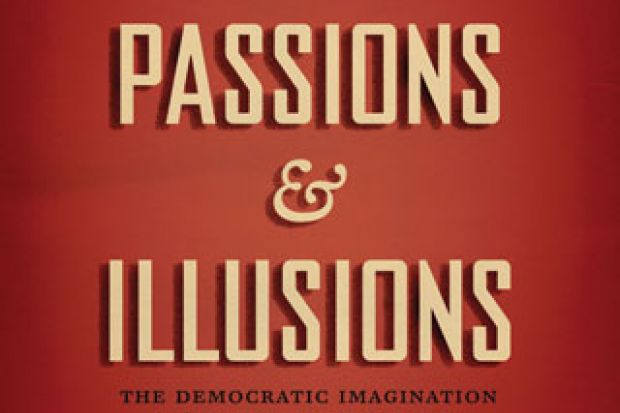François Furet was one of the great European intellectuals of the past century. His writings, especially Penser la Révolution française (1978), challenged the prevailing Marxist paradigm about the main forces shaping historical dramas.
Ideas mattered immensely, Furet argued, and he insisted that it was the ideological impetus that led to the Jacobin Terror during the French Revolution and to the establishment of the Soviet utopian experiment following the Bolshevik takeover in October 1917. The publication earlier this year of Jonathan Israel’s Revolutionary Ideas has reignited the debate about the decisive power of ideas in the realm of revolutionary passions. And, 25 years after the triumph of the revolutions in Eastern Europe, it is hard to deny the impact of significant ideas – including Václav Havel’s concept of the power of the powerless – in galvanising anti-totalitarian civic energies.
After the breakdown of the Soviet Union, Furet undertook a comprehensive analysis of what he called the communist century in his final masterpiece, The Passing of an Illusion: The Idea of Communism in the Twentieth Century. Many on the Left, especially in France but not only there, disputed his characterisation of communism as a failed dream, simultaneously a lie and an illusion with catastrophic consequences. They tried to counter it with the specious argument that, in spite of all the documented disasters, the “idea of communism” has remained a regulative principle for any post-capitalist social endeavour. But in this slim, elegant and impressively provocative book, Furet, who died in 1997, answers the persistent attempts to exonerate the supposedly pristine theory from its palpably appalling effects: “The Communist idea, as an abstract idea, did not die with the disappearance of the Soviet Union. To the extent that it was born of the frustrations inseparable from the capitalist society, and from the hatred of a world dominated by money, it is independent of its ‘realization’; all it needs is the abstract hope of a post-capitalist universe. Nonetheless, from that time on, it also had a history whose losses were impossible to write off.”
This posthumous volume is based on Furet’s edited notes from a never-completed volume of oral dialogues with the philosopher Paul Ricoeur. Historian Christophe Prochasson, author of an outstanding biography of Furet, provides an informative introduction in which he justifiably calls this work the author’s intellectual and political testament. And indeed, the book addresses, in an admirably thoughtful manner, all the important topics Furet explored over the course of his scholarly career.
One of the most controversial stances embraced by Furet in his hugely successful work The Passing of an Illusion, revisited and developed here, is the comparability of the 20th century’s two totalitarian genocidal regimes, Bolshevik and Nazi. When German historian Ernst Nolte suggested that they shared defining features, many took issue with what they perceived as a relativisation of the uniqueness of the Holocaust. Nolte was wrong in claiming a “causal nexus” between communism and National Socialism, but, as Furet shows, analogy does not mean identity.
Altogether, this short volume is a collection of illuminating historical reflections, lucidly spelled out and mercifully devoid of bombast and jargon. In Furet’s writings, moral clarity and intellectual rigour merge marvellously. This book is not only about the past but also about the current European predicament, the resurgence of nationalist sentiments and emotions, and the pitfalls of new ideological siren songs. It should be read as a melancholy reflection on past delusions and a caveat about their possible return as humankind grapples with agonising uncertainties. In refusing to be seduced by optimistic paeans to irreversible social progress, Furet reminds us that democratic politics is a continuously endangered undertaking.
Lies, Passions & Illusions: The Democratic Imagination in the Twentieth Century
By François Furet, translated by Deborah Furet
University of Chicago Press, 128pp, £14.00
ISBN 9780226114491 and 157306 (e-book)
Published 10 November 2014
Register to continue
Why register?
- Registration is free and only takes a moment
- Once registered, you can read 3 articles a month
- Sign up for our newsletter
Subscribe
Or subscribe for unlimited access to:
- Unlimited access to news, views, insights & reviews
- Digital editions
- Digital access to THE’s university and college rankings analysis
Already registered or a current subscriber? Login





